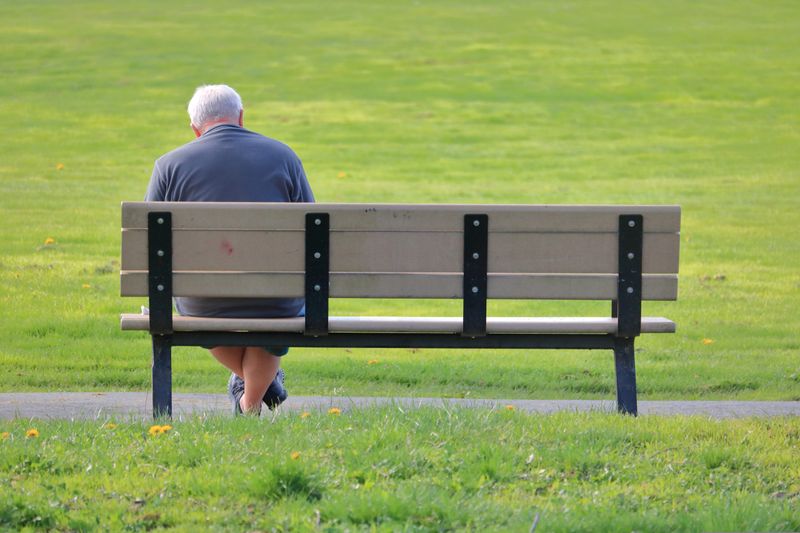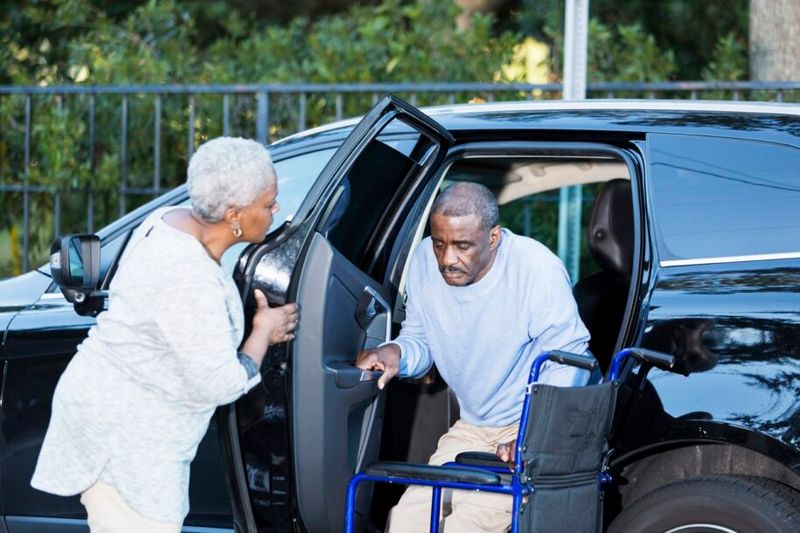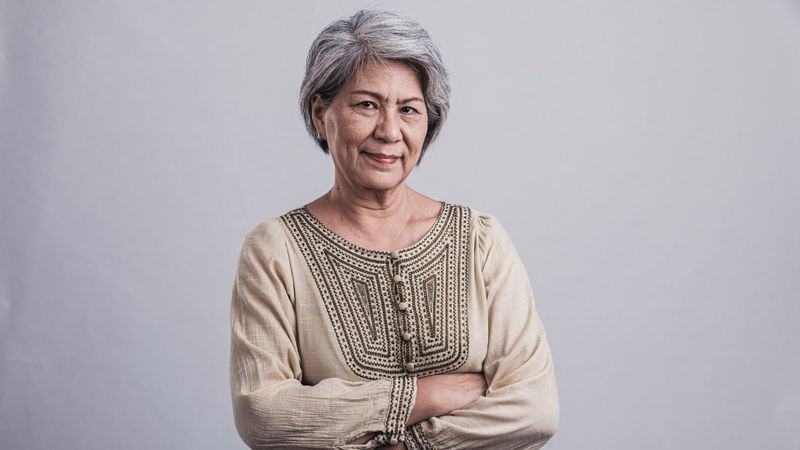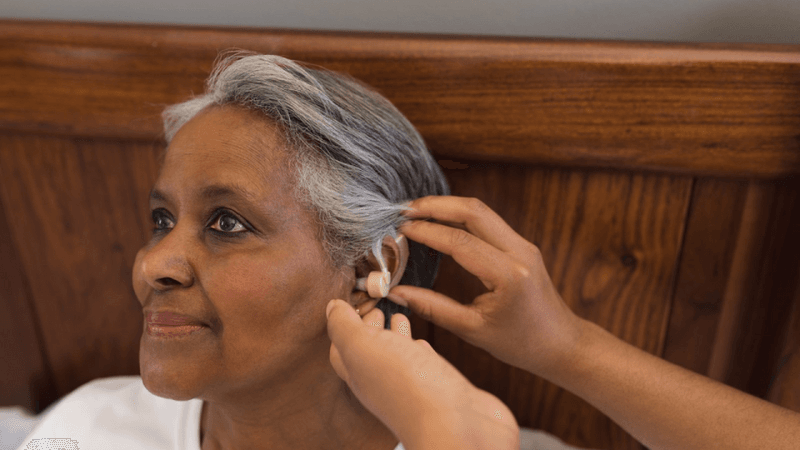Do you know what nobody wants to admit out loud? Growing old isn’t all cozy sweaters and grandkids’ laughter—it’s a parade of curveballs that can leave you reeling when you least expect it. If you’re lucky enough to live a long life, you’re also lucky enough to face the real, gritty side of aging.
Some days it feels like the universe is piling on just to see how much you can take. I’m not here to sell you silver linings or pat advice. This is the conversation I wish someone had with my own mom after her 80th birthday—brutal, honest, and full of heart.
Here’s what really happens when you live a long, long time—and how, even when the world feels smaller and rougher, you can still carve out something that feels like hope.
1. Physical Health Decline
It’s hard to forget that first time you catch yourself grunting just to tie your shoes. Bodies give out in small betrayals: stiff fingers, knees that crunch, a back that refuses to play along. Some mornings, it hits like a hangover—except you didn’t get the fun night out.
You start swapping stories with friends about surgeries, doctors, and the medications you can’t pronounce. Nobody prepares you for the humiliation of needing help to shower or dress. You grieve the miles you used to walk, the dance moves you could pull off at weddings.
But there’s a stubborn power in fighting back a little. Maybe you swap dance floors for gentle yoga, or let your grandkid teach you chair exercises. You keep showing up to appointments, swallowing your pride with the vitamins. You find new ways to move, even if it’s just from bed to window. That’s grit.
2. Cognitive Decline and Memory Issues
What if you wake up and the world feels a little less familiar? Not in a dramatic, movie-style way—just a fog in the corners of your mind. Names slip off your tongue, the reason you opened the fridge vanishes, old stories come back in the wrong order.
It unravels you, piece by piece. You start writing reminders, sticking notes everywhere, laughing it off with your friends—even as it gnaws at your confidence. Losing your sharpness isn’t just inconvenient; it’s scary and lonely.
Still, you fight for your mind. You force yourself to read, puzzle, play cards. You ask the same question twice, and let it be okay. You let your daughter’s patience fill in the blanks. Some days your memories come back like old songs—you dance anyway.
3. Financial Insecurity
Ever notice how money worries don’t care about birthdays? Retirement savings run out fast when every new ache costs more to fix. You stretch pennies, skip treats, and feel the pinch when your medicine isn’t fully covered.
It’s not about greed—it’s about dignity. You say no to outings, cut coupons, feel guilty about asking for help. Pride and panic live in your chest together, fighting it out every time the phone rings with another bill.
You adapt. Maybe you ask that neighbor for budgeting tips, or swallow your fear and check out those government programs. You learn to question every expense, make old clothes last, and dig up a little hope. Sometimes, grit looks like asking for help so you can keep your independence.
4. Social Isolation and Loneliness
There’s a special kind of silence when the house stays too quiet for weeks. You outlive friends, lose touch with old coworkers, and the phone just doesn’t ring much anymore. Loneliness isn’t loud—it’s a dull ache, like missing a limb you never talk about.
You replay family memories, scroll through old photos, try to fill the void with TV or puzzles. Sometimes, you reach for conversation like oxygen. You wonder if anyone would notice if you disappeared for a few days.
You get creative—joining community lunches, calling grandkids, chatting up the mailman. It’s work, but you build connections where you can. You learn that it’s okay to need people, even if you have to ask twice.
5. Loss of Independence
Freedom means something different when you can’t drive or climb stairs. Suddenly, you have to ask for rides, let someone else cook, or rely on gadgets just to brush your teeth. It stings in places pride used to live.
The hardest part? Feeling invisible when people speak to you like you’re made of glass. You want to scream, “I’m still here—just slower.” Every little loss adds up, reshaping who you are and how you move.
You find ways to keep a grip on the wheel. Voice your needs, try new tools, let yourself accept help now and then. Maybe independence is less about doing it alone, and more about choosing how you show up—on your own terms.
6. Technological Challenges
Remember when a phone just made calls? Now everything needs Wi-Fi, passwords, and updates that pop up at the worst times. You stare at a screen, feeling both stubborn and embarrassed.
Kids seem to speak another language. They swipe, click, and set things up in seconds while you’re still hunting for the “on” button. Asking for help gets old, but you want to stay in the loop, not left out.
You sign up for classes, give yourself permission to mess up, and keep trying. Every text sent, every video call, is a small rebellion against feeling obsolete. You remind yourself you’ve learned harder things—like being a parent.
7. Elder Abuse and Exploitation
You trust, maybe because you have to. But sometimes, the world gets mean—or greedy. Scams target your mailbox, strangers call pretending to be family, and sometimes, heartbreakingly, it’s someone you love who takes advantage.
You don’t want to seem paranoid. But fear creeps in, making you second guess visitors and phone calls. It’s humiliating to admit you’ve been fooled, or afraid in your own home.
You pull together a team—trusted friends, bank alerts, or a neighbor who checks in. You talk openly about boundaries, and remember you’re allowed to say no. Staying safe is a kind of power; sharing your story helps others stay safe too.
8. Medication Management
Pills become a new food group. Some are pink, others blue, all lined up in boxes with days and times. Missing a dose isn’t just a mistake—it can spiral into something dangerous.
You make charts, set alarms, double-check with the pharmacist, hoping not to get it wrong. The pressure to remember every step is its own stress, especially when the instructions blur together.
You ask for help, use tech reminders, and talk with your doctor about simplification. Mastering the medicine juggle is a weird badge of honor. You learn to trust your own routines, and that’s nothing to sneeze at.
9. Grief and Loss
Losing people never gets easier; you just get more practiced at hiding the ache. Each goodbye sharpens the empty seats at the table, the memories that hurt to hold. Grief moves in, rearranging your heart’s furniture.
You keep old letters, wear their favorite sweater, hear their laugh in your dreams. The world feels rearranged, like you’re living on a street where your house used to be. Occasionally, you fake a smile for family just to keep them from worrying.
You let yourself cry, tell your stories, and join support groups where nothing needs explaining. Honoring the people you loved keeps them close. You realize you can carry both pain and gratitude—at times in the same breath.
10. Fear of Falling
It can hit you out of nowhere: a slip in the shower, a missed step, and suddenly you’re terrified of your own feet. Falls don’t just bruise your body—they shake your trust in yourself. You start planning routes around hazards, tiptoeing through your own home.
The fear lingers, making you second guess every move. You stop reaching for the top shelf, avoid going out alone, and wonder if each step will be the one that changes everything. It’s exhausting to be on guard all the time.
You adapt your space—grab bars, non-slip mats, brighter lights. Maybe you sign up for balance classes or finally use that walker. Courage is learning to move forward anyway, even if it’s slow.
11. Nutritional Challenges
Food loses its sparkle when eating feels like a chore—or when you’re cooking for one again. Tastes change, teeth hurt, and grocery trips become marathons. You start skipping meals, convincing yourself you’re not hungry.
You remember favorite family recipes, but sometimes the effort feels bigger than the reward. Malnutrition sneaks up quietly, disguised as weight loss or low energy. There’s a guilt that comes from wasting food or losing interest in what you used to love.
You get creative—meal delivery, easy recipes, or asking a neighbor to cook together. Maybe you talk to a nutritionist, or let yourself enjoy small treats guilt-free. Eating well is another way to feel strong, even if it looks different these days.
12. Transportation Barriers
Surrendering your car keys feels like losing a chapter of yourself. Suddenly, errands stretch into all-day affairs, and spontaneity vanishes. You miss being able to just go—even if it was just to the corner store for milk.
You scan bus schedules, call rideshares, beg family for lifts. The world shrinks to walking distance, city routes, and weather forecasts. Isolation and frustration crank up with every canceled plan.
You get strategic: plan outings together, try community shuttles, accept that asking isn’t weakness. Maybe you rediscover walking, or find joy in the slow pace. Getting somewhere new, any way you can, becomes a small victory.
13. Ageism and Stereotypes
People stop seeing you—they see your wrinkles instead. Strangers talk slower, call you “sweetie,” and act like you’re invisible. You start to wonder if your opinions matter, or if you’re just a background detail in someone else’s story.
Society pushes you aside, making you fight for relevance. Opportunities dry up, and the expectation is that you’ll fade quietly. It stings more than you admit.
You push back by speaking up, sharing your story, and connecting with people who see the real you. Volunteering, mentoring, or simply refusing to shrink can be acts of rebellion. You remind yourself, every day, you’re more than the years on your license.
14. Sensory Impairments
When your senses start to dim, the world feels farther away. You strain to catch a joke, miss a doorbell, or struggle to read labels. Suddenly, everyday tasks feel like puzzles you never asked for.
You collect gadgets—hearing aids, magnifiers, subtitles—learning new ways to connect. It’s frustrating, sometimes embarrassing, to ask people to repeat themselves or turn up the volume.
You grow resourceful, finding hacks for every challenge. You ask for patience, explain your needs, and refuse to apologize for adapting. Little by little, you build a bridge back to the world you love.
15. Substance Use and Misuse
No one warns you that getting older brings new temptations. Pain, loneliness, and regret can make those extra drinks or pills seem like relief. You justify it to yourself—”I’ve earned it,” or “It helps me sleep.”
But dependence creeps in, subtle and slow. Soon you’re hiding bottles, skipping doses, or feeling out of control. The shame is real, especially when you feel like you should know better by now.
You reach out—a doctor, a hotline, maybe a support group at the library. Admitting you need help is hard, but it’s a first step back to yourself. Healing, at any age, is possible. You’re not alone.
16. End-of-Life Planning
Nobody likes talking about the end. Filling out forms, making decisions about what happens when you’re gone—it feels heavy, even taboo. But ducking the topic just leaves your family guessing and yourself unprepared.
You gather papers, have hard talks with your kids, and spell out your wishes. There’s a relief that sneaks in when you face reality head-on, even if your voice shakes a little.
You write everything down, ask for help when it’s confusing, and let yourself feel proud for owning your story. Planning becomes a final act of love for the people who will remember you.

















